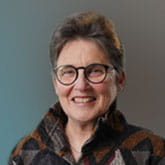Recently, NextGen Healthcare commissioned Harris Poll to conduct an online Connected Healthcare Study among 2,055 adults ages 18+. The survey was conducted within the United States between March 25 -29, 2021. The survey focused on individuals who had interacted with the healthcare system in the last year. The aim of the Connected Healthcare Study was to understand the impact COVID-19 has had on healthcare and communication with providers, as well as to gain insights into experiences and preferences as it relates to telehealth and online healthcare tools.
A key question the survey asked which specific providers the participants typically see (in-person or via-telehealth) once a year or more often. Eighty-four percent of respondents reported that they saw a provider in the last year, most commonly a primary care physician (PCP) (68%). Other providers seen once a year or more often include:
- Women’s health provider – 33% (among women)
- Ophthalmologist – 26%
- Mental health provider – 18%
- Orthopedist – 9%
- Other – 14%
In the context of the COVID-19 pandemic, it was interesting to see that 18% reported seeing a mental health provider. Data from other surveys found that 44% of Americans had seen a behavioral health provider in the last year, making the response in the current survey somewhat low. The number of individuals who reported seeing an ophthalmologist annually was somewhat surprising and may have reflected the confusion among members of the public as it pertains to the difference between ophthalmologists and doctors of optometry. Not surprisingly, the results also showed that older adults were more likely to see overall doctors more frequently, women with higher household income more likely to see OB/GYN and younger patients more likely to see a behavioral health provider.
More than one in four U.S. patients (27%) reported that they missed an in-person appointment with a healthcare provider during the COVID-19 pandemic, and just under a quarter of U.S. patients (23%) had put off receiving follow-up medical care because they felt uncomfortable with seeing their healthcare provider in-person during the COVID-19 pandemic. This data raises significant concerns that important therapeutic and preventive check-ups were postponed and that we are likely to see conditions that have worsened or gone undiagnosed because of these reported delays. These delays will further extend the negative impact on health and wellbeing that the COVID pandemic has already had.
Survey respondents were asked about the patient engagement capabilities that they would prefer their new healthcare provider offered, 49% selected online appointment scheduling, 49% selected the ability to check-in or complete health forms/appointment paperwork online before an appointment, 48% named online prescription management and online medical records access. Roughly two in five U.S. patients reported that digital communication capabilities we important, 38% expected online bill pay capabilities and 37% expected telehealth appointments. About a third said that the ability to change or update health insurance online was important and as a sign of the times, 31% were expecting the new practice to offer online payment estimates.
More than two thirds of U.S. patients (69%) had seen a healthcare provider via telehealth since the COVID-19 pandemic began, with more than two in five (46%) meeting with a PCP and about one in five (19%) meeting with a mental healthcare provider. Other providers who respondents have seen via telehealth since the pandemic began included specialties like ophthalmology and women’s health and orthopedic care, which are were not considered to be typical telehealth user prior to the pandemic.
Telehealth is clearly emerging from the COVID-19 pandemic as the new normal - an overwhelming majority (84%) of respondents who received telehealth services since March 2020 reported that they plan to continue using telehealth appointments in the future, with the top reasons being that it’s more convenient (43%) or to avoid being around people who are ill (39%).
One of the most striking results of the survey was that nearly half of U.S. patients (48%) reported that they have sought (4%) or would be likely to seek care (44%) from a different healthcare provider if their current provider did not offer telehealth appointments. This is clearly a resounding message of support for telehealth from patients to their physicians. As we look back on the broader impact of the COVID-19 pandemic, it will have catapulted patient awareness and acceptance of telehealth and virtual care to an extent that would have been inconceivable prior to the pandemic. It has also brought to the forefront many other aspects of patient electronic and virtual engagement with providers across all specialties. For example, activities like scheduling appointments, billing and payment which were all handled predominantly in person previously are now being done online. In this respect, this terrible pandemic had a bright ‘virtual’ silver lining.
Listen to our podcast where the NextGen® Advisors discuss the findings from this survey.
Subscribe to the NextGen® Advisor blog to keep updated with the latest news and issues impacting the healthcare community.
Meet NextGen Ambient Assist, your new AI ally that generates a structured SOAP note in seconds from listening to the natural patient/provider conversation.
Read Now